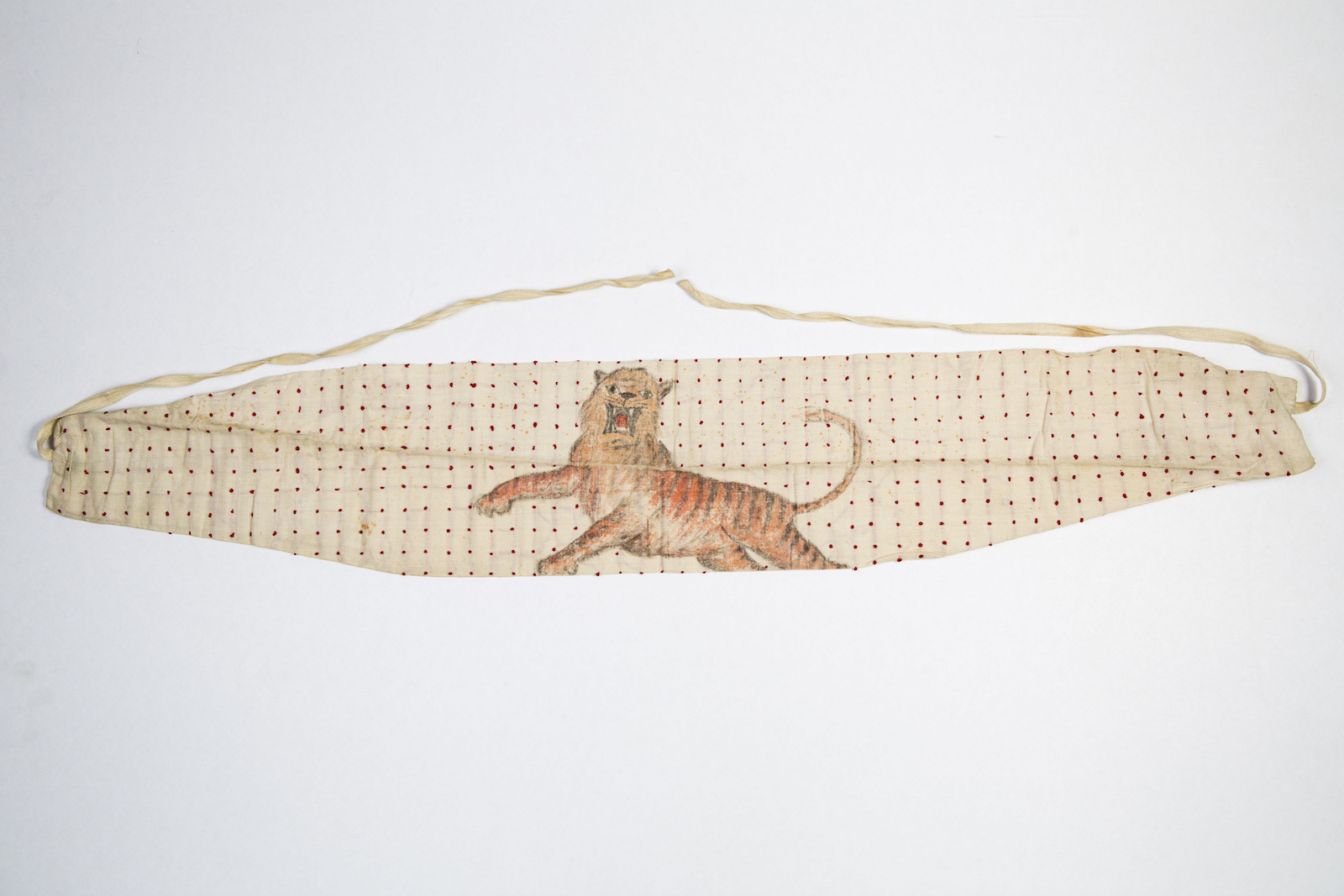A senninbari (Japanese for “1000-person stitches”) is a strip of white cloth with 1000 red stitches, each made by a different woman, which is given to soldiers going off to war. It originated in Imperial Japan and served as an amulet for a safe return home.
Senninbaris are often made by mothers or wives, with a community of other women, to give protection to husbands and sons departing for war. Dr. Ito’s mother organized the women in Rohwer to contribute by each putting in a stitch; his cousin Emiko put the last stitch into this senninbari.
I so highly valued the senninbari that it was the item that bound me to my mother and furthermore made me feel that I had no fear that I might not survive the many combat experiences and come home intact. However, being an item that Japanese soldiers carried into combat, I did not tell anyone, even my closest buddy, that I had this item and kept it a secret through the War.
I treasured it. My mother used to tell me about senninbaris as a child. She sent it to me. I carried it in my pocket. I had a close attachment to it, and to my mother because she made it. I’d like to think that my senninbari helped get me back safely.
—Sus Ito, email to Lily Anne Yumi Welty Tamai, February 20, 2015
- How does the story of Dr. Ito’s senninbari reflect his identity as a Japanese American soldier and the anxiety of being Japanese American at that time?

